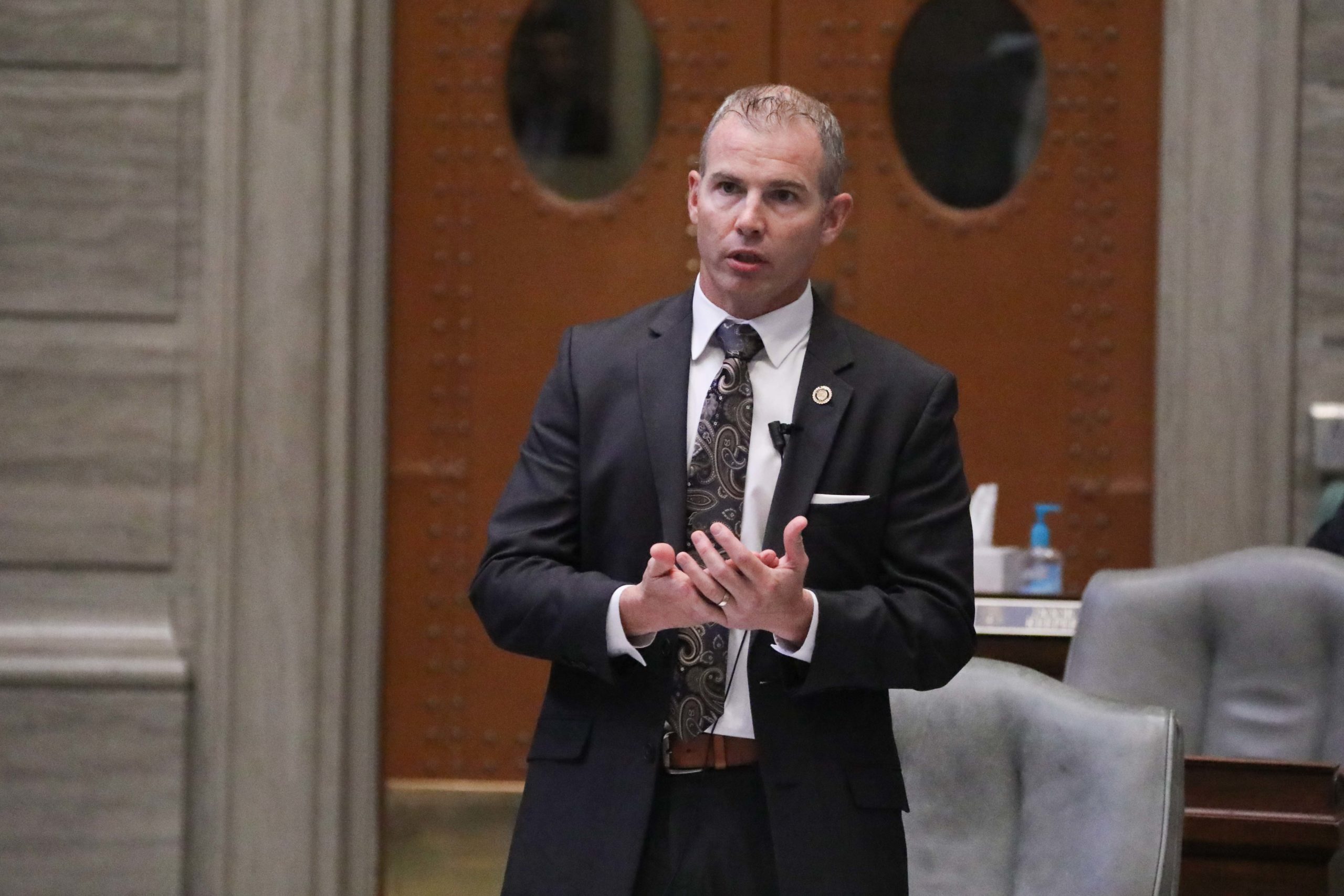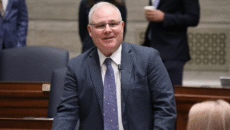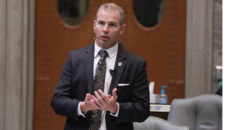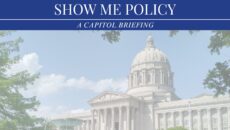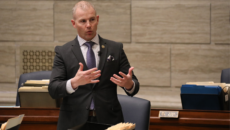One of the most talked-about bills to pass during the previous session was legislation creating $50 million in tax credit-funded accounts for public and private school expenses.
Rep. Phil Christofanelli’s Empowerment Scholarship Account program, signed into law earlier this year, was specifically billed as aiding students with disabilities or in low-income families. It applied to counties with charter governments or in a city exceeding 30,000 people and is triggered by K-12 transportation funding.
This year, Sen. Rick Brattin wants to further opportunities for students to access an education savings account (ESA).
A member of the Conservative Caucus, Brattin has already pre-filed legislation to make eligible any public school student or first-time enrollee for an ESA if they live in a household with an income that is not greater than two times the threshold used to qualify for free or reduced-price lunch.
Like last year’s bill, the ESA funds would be managed by the state treasurer. However, unlike Christofanelli’s legislation, the money for this program would be appropriated by the General Assembly as opposed to a tax credit. There are also no demographic requirements included in Brattin’s bill.
Brattin likened his SB 841 to a “voucher system” and said the previous ESA bill was a “great first step.”
“I believe the people are wanting something more robust, something that applies to everyone, not just depending on what zip code you live in,” Brattin said. “When we’re passing state policy, in my opinion, it has to be across the board and for all to take advantage of.”
Brattin’s ESA program would allow for families to use the money on tuition and fees for a private school or non-public online learning program, payments for curriculum or tutoring services, or textbooks. Money could also be used for tuition and fees at eligible postsecondary institutions and required college textbooks.
Once a student becomes eligible for the ESA program, they would remain in the system regardless of a change in income until the student graduates from high school or turns 21 years old.
Should a student suddenly become ineligible, the money would be transferred back to the fund overseen by the state treasurer.
“I’m a school choice advocate. I believe the dollar absolutely should follow the students and allow for [parents] to decide what educational choices are best,” Brattin, who is running for U.S. Congress, said. “Protecting public systems is not what we’re charged to do — especially when we see in numerous areas they’re failing our students. Are we supposed to make sure our children are trapped in these situations where they’re below the standard on every testable aspect or do we pass policy that ensures parents and children have the best tools at their disposal?”
Majority Floor Leader Caleb Rowden said he plans to make education and school choice a priority for this upcoming legislative session. (To note, Rowden was not commenting specifically on Brattin’s bill but on education reform in general.)
Another state already has multiple programs
Having multiple versions of education choice programs is not completely unique.
The Florida Tax Credit Scholarship Program was instituted in the Sunshine State in 2001, allowing for state tax credits for contributions to certain nonprofit scholarship-funding organizations. Those organizations, in turn, provide scholarships to students in low-income families.
But Florida also has the state-funded Family Empowerment Scholarship Program with two branches: one aids students in low-income families and the other helps students with disabilities. However, only one is a true ESA.

The Family Empowerment Scholarship for Students with Unique Abilities operates as the largest ESA in the nation. It provides up to $10,000 for each student to use on private school tuition, homeschool curriculum, and other expenses. It is funded through the Florida Education Finance Program, the legislature’s education funding formula.
Florida also has the Reading Scholarship ESA program which gives public school students in third through fifth grade $500 for tutoring and other literacy programs and instructional materials. It is funded through legislative appropriation.
“The COVID pandemic and its effects on schools have made it clearer than ever that families require a variety of options to ensure their children receive their education. Education Savings Accounts (ESAs) in particular give parents the flexibility to spend their education dollars in ways that can customize student learning, by allowing them to choose the education settings, materials, and services that best fit their children’s needs,” Scott Kent, a spokesperson for Step Up For Students, a Florida nonprofit, said in an email.
The Florida Legislature just expanded eligibility for its Family Empowerment Scholarship Program earlier this year. It is funded through the Florida Education Finance Program, the state’s funding formula for education.
Florida Democrats castigated the expansion of the ESA program as an “effort to erode Florida’s public education system by ushering forth the largest expansion of private school vouchers in our state’s history — ignoring the notion that public funds should be used for public schools,” according to Florida Politics.
Education expected to drive upcoming session
Many have looked to the recent Virginia gubernatorial race, in which Republican Terry McAuliffe beat former Democratic Gov. Terry McAuliffe, as a precursor to just how important of a role education will play in politics in the coming year.
But in Missouri, a myriad of concerns with education in the state has been percolating, becoming more evident throughout the COVID-19 pandemic.
Already, multiple bills have been filed in the Missouri Legislature to curtail school shutdowns and quarantine orders, prohibit the teaching of critical race theory or the 1619 Project, or restrict student-athletes to competing only in sports corresponding to the gender assigned at birth.
In the upper chamber, Sen. Cindy O’Laughlin is once again championing legislation to increase literacy.
Sen. Karla Eslinger, a Republican, pre-filed legislation to increase workforce development in education. Her bill requires a career and academic plan as well as a completed FAFSA (with certain exemptions such as for those entering the Armed Services) to graduate high school, among other things.
Democratic Sen. Lauren Arthur, a former middle school teacher, is championing a package meant to promote a “competency-based education” model. The idea is to allow for the state to reimburse school districts for students enrolled in competency-based courses, similar to how it can for attendance. It establishes a grant program for schools that choose to go this route and a task force in charge of implementing a statewide plan.
This story has been updated.

Kaitlyn Schallhorn was the editor in chief of The Missouri Times from 2020-2022. She joined the newspaper in early 2019 after working as a reporter for Fox News in New York City.
Throughout her career, Kaitlyn has covered political campaigns across the U.S., including the 2016 presidential election, and humanitarian aid efforts in Africa and the Middle East.
She is a native of Missouri who studied journalism at Winthrop University in South Carolina. She is also an alumna of the National Journalism Center in Washington, D.C.
Contact Kaitlyn at kaitlyn@themissouritimes.com.

